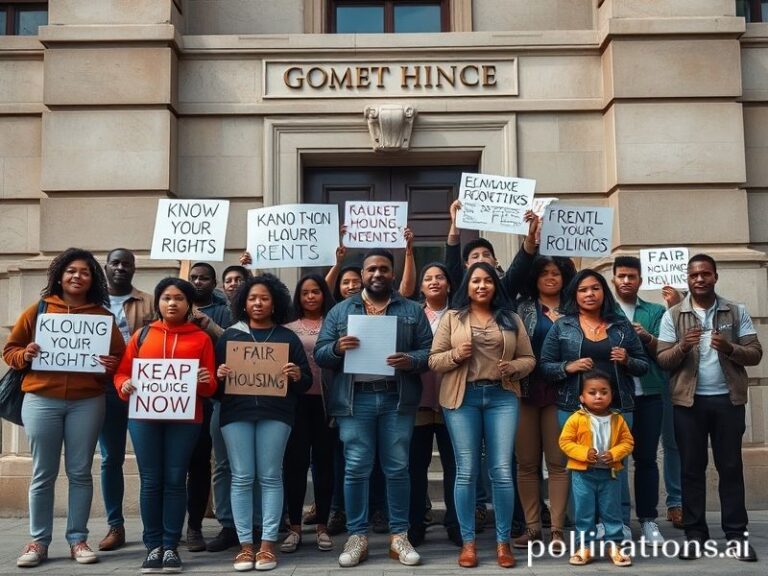Sam Houston vs. Texas: The Global Schadenfreude When a State Tries to Cancel Its Own Founding Father
Sam Houston vs. Texas: When an Empire’s Favorite Son Tries to Secede from the Secessionists
By Diego “Still Paying Rent in Six Currencies” Morales, International Affairs Desk, Dave’s Locker
PARIS—Over croissants that cost more than a day’s wage in Caracas, French diplomats were overheard asking one another last week: “Did Texas just pick a fight with its own founding father?” The question, equal parts existential and Tex-Mex, ricocheted from Brussels think tanks to Seoul trading floors faster than you can say “Remember Goliad.” The trigger: a fresh legal and cultural dust-up—call it Sam Houston v. Texas 2.0—wherein the Lone Star State’s modern secession-minded legislature discovered, to its horror, that the very man who secured Texas independence in 1836 was, by today’s yardstick, an anti-secession unionist who loathed slavery’s expansion and once called a proposed Confederate flag “a dish-rag.” Cue identity crisis at 29 million decibels.
The rest of the planet watched with the same detached fascination reserved for slow-motion TikToks of influencer yacht fires. In India, WhatsApp uncles forwarded memes of Houston in a turban labeled “OG RINO” (Republican In Name Only). German MEPs scheduled committee hearings titled “Subnational Divorce Proceedings: A Comparative Study,” largely to escape discussing their own heating bills. Meanwhile, Japan’s Nikkei quietly added “Tex-Mex Civil War Reenactment Futures” to its volatility index, because if anyone can monetize existential dread, it’s Tokyo traders.
Globally, the spectacle matters beyond kitsch. Texas is the world’s eighth-largest economy, nestled between Brazil and Italy but with better brisket. Should its present leadership continue retrofitting history—renaming schools, toppling statues, rewriting textbooks to paint Houston as a temporary foreign consultant rather than a founding CEO—the ripple effects hit supply chains faster than a late-semester U-turn on term-paper citations. Taiwanese chipmakers who recently planted $30 billion worth of fabs outside Austin began Googling “What if Texas tries to issue its own passports?” with the same panic Californians reserve for “Richter 7.2.”
Europe, ever the connoisseur of separatist theater, issued a joint statement so bland it could have been ghost-written by oat milk. Still, behind closed doors, EU diplomats worry that if Texas normalizes historical revisionism as policy, the Catalonias, Scotlands, and New Caledonias of the world will demand equal script-doctoring rights. The Kremlin, never wasting a good culture war, launched a 24-hour English-language channel called “Lone Star Pravda,” featuring deep-fake Sam Houston in a cowboy hat quoting Lenin on self-determination. Ratings, alas, remain lower than Siberian January.
In Africa, the subplot reads differently. Nigerian policy analysts note that Houston’s original sin was not opposing slavery enough—he owned enslaved people while publicly calling the institution “a curse.” That contradiction now gets weaponized by both American conservatives (to prove moral complexity) and progressives (to prove systemic rot). The result is a transatlantic Rorschach test: everyone sees the blot they’re paid to see. Kenyan satirists, seasoned by their own post-colonial statue debates, have produced a viral skit in which Houston applies for Kenyan citizenship because “at least your historical arguments come with nyama choma.”
China, ever pragmatic, simply bought another 10,000 acres outside Lubbock for cotton-to-solar-farm conversion and issued a one-line press release: “Internal affairs of foreign subregions are not our concern, but please keep rare-earth shipments on schedule.” Translation: Beijing will watch the slap fight while ensuring Texans keep shipping lithium-ion batteries the way Rome once demanded Egyptian grain.
Back in Austin—where the state capitol dome is plated with copper that once graced the roofs of Belgian monasteries—lawmakers responded to the Houston controversy by proposing a new slogan: “Texas: Bigger Than Its Founders.” Critics noted the phrase also works for most egos in the room. A bipartisan caucus suggested replacing Houston’s statue with an animatronic Elon Musk that quotes Sun Tzu every hour on the hour, but costs ran afoul of the same grid that froze two winters ago. For now, the statue stays, wrapped in 300 feet of caution tape like a Christo installation nobody asked for.
Conclusion: In the grand bazaar of 21st-century statecraft, Sam Houston versus Texas is less a lawsuit than a live-action morality play about what happens when a society tries to fire its own origin myth for insubordination. The rest of us—whether sipping yerba mate in Montevideo or dodging scooters in Amsterdam—watch, munch popcorn, and adjust our portfolios accordingly. Because if history teaches anything, it’s that when Texans start arguing over who gets custody of the Alamo, global supply chains get the alimony bill. And Sam Houston, dead 160 years, still can’t catch a break—proof that in geopolitics, no good deed goes un-seceded.







